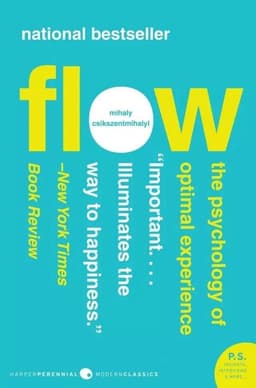
Flow Book Summary
The Psychology of Optimal Experience
Book by Mihály Csíkszentmihályi
Feeling Lazy?Read 1 Minute Summary
Summary
Flow reveals the secrets of optimal experience and shows how to transform even the most mundane moments into a source of enjoyment, creativity and meaning by learning to control consciousness itself.
Sign in to rate
Average Rating: 5
The Quest For Happiness Is Not New
Aristotle concluded over 2,300 years ago that more than anything else, men and women seek happiness. While much has changed since then, this central yearning has not. What gives life meaning is not money or prestige, but how we feel and experience our lives from within. Despite having more material comforts and luxuries than ever before, people today are often no happier than in the past. The key to happiness lies not in external circumstances, but in how we manage our inner life and consciousness.
Section: 1, Chapter: 1
External Conditions Don't Determine Internal Happiness
Our inner experience is not inevitably determined by external events. We have the power to reshape how we experience and interpret our circumstances through controlling our consciousness.
- Don't rely on external achievements or acquisitions to make you happy. That is outside your direct control.
- Cultivate the ability to find enjoyment in any situation by managing your inner life. Learn to control your attention and the contents of your consciousness.
- Invest energy in experiences and relationships, not just material things. The quality of your experiences determines your quality of life.
Section: 1, Chapter: 1
The Perils Of Unrestrained Pleasure-Seeking
The Marquis de Sade perfected the infliction of pain into a form of pleasure, illustrating that narcissistic individuals who are mainly concerned with protecting their self fall apart when external conditions turn threatening. Pleasure does not lead to happiness, only to the desire for more pleasure.
As Freud said, the two tyrants that fought for control over the mind were the id (servant of genetic desires) and the superego (lackey of society). In contrast, the ego stood for the genuine needs of the self. Eastern disciplines like yoga seek to free consciousness from these external pressures.
Section: 1, Chapter: 1
Consciousness Is An Organizing Force
Consciousness has the vital function of representing information about what is happening inside and outside the organism in a way that allows for evaluation and action. It acts as a clearinghouse for sensations, perceptions, feelings and ideas, establishing priorities among all the diverse information. Without it, we would still "know" what's going on but only react instinctively. With consciousness, we can deliberately weigh what our senses tell us and respond accordingly. It creates order out of chaos.
Section: 1, Chapter: 2
Happiness Through Control Of Consciousness
To achieve mastery over consciousness and enable flow experiences:
- Set clear goals
- Find ways to measure progress
- Keep concentrating on the task at hand
- Develop the skills to interact with available opportunities
- Keep raising the stakes if the activity becomes boring
Following this process turns even mundane tasks and routines into enjoyable flow activities. The key is learning to restructure what happens in consciousness moment by moment.
Section: 1, Chapter: 2
Learn To Control What Happens In Consciousness Moment By Moment
"The function of consciousness is to represent information about what is happening outside and inside the organism in such a way that it can be evaluated and acted upon by the body. In this sense, it functions as a clearinghouse for sensations, perceptions, feelings, and ideas, establishing priorities among all the diverse information. Without consciousness we would still "know" what is going on, but we would have to react to it in a reflexive, instinctive way. With consciousness, we can deliberately weigh what the senses tell us, and respond accordingly."
Section: 1, Chapter: 2
Overcoming Psychic Entropy
Psychic entropy is the disorder we experience when information conflicts with existing intentions or when we don't know what to do with our attention. This causes a lack of focus, procrastination, confusion, and stress.
To overcome psychic entropy and achieve flow:
- Set clear intentions and stick to them. Be very selective with what you pay attention to.
- Develop the ability to concentrate deeply on the task at hand. Limit distractions and interruptions.
- Invest your attention fully in the present moment and current activity. Let go of worries, regrets and rumination.
- Choose activities that have clear goals and provide immediate feedback. Adjust the level of challenge to match your skills.
Section: 1, Chapter: 2
Personal Growth Through Flow
A young boy named Sam Browning had no clear direction in life as a teenager. But during a Christmas holiday in Bermuda with his father, Sam went scuba diving for the first time and was enchanted by the mysterious underwater world he discovered. This chance experience captured his attention and he built it into a structure of goals - to learn more about the ocean, study marine biology in college, and ultimately become a marine scientist.
What started as an accidental flow experience transformed Sam's sense of self by providing a new center of interest around which to organize his psychic energy. The initial spark of curiosity evolved into a lifelong passion through the reciprocal effect of shaping his identity and his actions.
Section: 1, Chapter: 2
The Elements Of Enjoyment
Optimal experiences have several common characteristics:
- They occur when we confront tasks we have a chance of completing
- We must be able to concentrate on what we are doing
- The activity has clear goals
- The activity provides immediate feedback
- One acts with deep, effortless involvement, without worries or frustrations
- There is a sense of control over one's actions
- Concern for the self disappears, yet the sense of self emerges stronger afterwards
- The sense of time is altered; hours pass by in minutes
This describes the phenomenology of enjoyment, the psychological conditions that make leisure and work activities conducive to flow.
Section: 1, Chapter: 3
The Autotelic Experience
"What makes an activity conducive to flow is that it is an end in itself. Even if initially undertaken for other reasons, the activity that consumes us becomes intrinsically rewarding. Surgeons speak of their work: "It is so enjoyable that I would do it even if I didn't have to." Sailors say: "I am spending a lot of money and time on this boat, but it is worth it—nothing quite compares with the feeling I get when I am out sailing.""
Section: 1, Chapter: 3
Transform Any Activity Into An Enjoyable Flow Experience
Even mundane activities can be transformed into something enjoyable by following these steps:
- Set an overall goal, and as many subgoals as realistically feasible. Know what you want to accomplish.
- Find ways to measure your progress and get feedback. Track your achievements in a concrete way.
- Keep concentrating on the activity and make finer and finer distinctions in the challenges involved. Push yourself to higher levels of performance.
- Develop the skills necessary to interact with the available opportunities. Keep learning and growing to meet bigger challenges.
- Keep raising the stakes if the activity becomes boring. Up the difficulty when it gets too easy.
Finding flow in everyday life requires restructuring routines into meaningful, goal-directed, skill-building activities. It's all about your approach.
Section: 1, Chapter: 3
Flow Requires A Balanced Challenge
To experience flow, there must be a good fit between the challenges perceived and the skills possessed. If the challenges are too high relative to one's skills, anxiety results. If one's skills are higher than the available opportunities for using them, boredom sets in. The ideal is a "golden ratio" where challenges and skills are perfectly balanced, stretching a person without overwhelming them. This optimal zone tends to emerge when a person is wholeheartedly performing a task or activity for intrinsic reasons.
Section: 1, Chapter: 4
Finding Flow At Work
Some key principles to transform even routine jobs into flow-producing activities:
- Identify long-term goals that lend meaning to the work. See how your efforts contribute to something greater.
- Find ways to get immediate feedback on your performance to track progress and adjust.
- Continually refine your skills and take on new challenges to avoid stagnation.
- Develop good relationships with coworkers and customers. Interacting with others boosts motivation.
- Reframe obstacles as opportunities to learn and grow. Don't be derailed by setbacks.
With the right approach, even mundane tasks can become vehicles for flow. It's about having clear goals, building skills, and focusing your mind.
Section: 1, Chapter: 4
The Autotelic Personality
Autotelic is a combination of auto (self) and telos (goal). An autotelic person is one who sets and pursues goals for intrinsic reasons, not external rewards or pressures.
Autotelic individuals tend to exhibit these qualities:
- Curiosity and interest in life
- Persistence and low self-centeredness
- Performing activities for their own sake, not external rewards
- Ability to enjoy the present moment without focusing on external pressures
- Intrinsic motivation to develop skills and take on new challenges
- Ability to translate threats into enjoyable challenges
- Frequent access to flow states
They also tend to pursue activities with clear rules and goals that allow for unambiguous feedback and total concentration.
Section: 1, Chapter: 4
The Joys (And Perils) Of Sex
Sex is one of the most powerful human drives, capable of producing both ecstatic pleasure and devastating anguish. In its basic biological form, sex provides pleasure but not necessarily lasting enjoyment or meaning. To transform sex into a flow activity requires skill, discipline and psychological growth.
The first step is developing physical techniques that allow for total absorption (as through Tantric practices). The next level involves adding a romantic-emotional dimension - getting to know and appreciate the partner as a whole person. The highest stage is a merging of two selves into a richer, more complex union, where the relationship itself becomes a vehicle for self-expansion. Sex motivated purely by selfish pleasure is a form of psychic entropy; sex in the service of love and mutual growth produces flow.
Section: 1, Chapter: 5
Harnessing The Mind-Body Connection
The mind and body are an integrated system. To achieve optimal human functioning, both need to work together and be trained as one.
- Engage in regular physical exercise, sports or dance. Bring full attention to the sensations and experience.
- Develop a healthy attitude toward sexuality. Learn to balance pleasure and intimacy.
- Practice mind-body disciplines like yoga, martial arts or Tai Chi. They cultivate physical grace with mental control.
- Appreciate music, art, food and natural beauty in a mindful, embodied way. Wake up to the richness pouring in through your senses.
- Use the body as a tool for mastering attention. Physical habits shape mental states. A healthy body enables a sound mind.
Section: 1, Chapter: 5
Eastern Paths To Mastering The Mind
Yoga and the martial arts offer two time-tested systems for achieving mind-body integration and flow.
Hatha Yoga aims to join individual consciousness with universal consciousness through physical postures, ethical behavior, breath control and mental concentration. Over years of disciplined practice, yogis are able to master their body, senses, thoughts and feelings.
The martial arts like Aikido and Karate also use physical training as a vehicle for mental development. Through cultivating a warrior mindset, students learn to overcome fear, live in the present, and maintain grace under pressure. The goal is to act with effortless spontaneity in any situation.
While their specific techniques differ, both traditions point to a common truth - that we can achieve an inner state of harmony by regulating attention through the body.
Section: 1, Chapter: 5
The Joys Of Thinking
Just as the body can be a source of flow experiences, so too the mind, arguably to an even greater degree. We often underestimate how enjoyable and rewarding thinking can be, if done for its own sake.
Great thinkers throughout history - Democritus, Aristotle, Archimedes, Newton, Einstein - have described their investigations as autotelic activities, pursued primarily for the sake of the experience itself. In fields as diverse as mathematics, poetry and philosophy, the act of grappling with conceptual problems is often described in ecstatic, almost mystical terms.
The same holds true for chess, logic games, artistic composition and scientific experimentation. Any mental activity that involves rules, goals and a perceived challenge can become a source of flow. What's required is learning the associated skills and then finding novel ways to use them.
Section: 1, Chapter: 6
The Rewards Of Lifelong Learning
Lifelong learning is perhaps the surest route to a life rich in flow experiences. By continually taking on new challenges that stretch skills, we can ensure that boredom never sets in. The key is choosing personally meaningful subjects and structuring the learning process as an enjoyable game.
Michel de Montaigne, the 16th century French Renaissance philosopher, exemplified this love of learning. At age 38, he abruptly left his political career to hole himself up in a tower stocked with books. He passed his remaining years reading, writing and contemplating life's great questions. His "Essays," which covered topics as diverse as horseback riding, cannibalism, and the nature of the self, became a testament to how the examined life can be its own reward.
Section: 1, Chapter: 6
Overcoming The Paradox Of Work
Many people describe their jobs as more engaging and enjoyable than their free time. Yet when asked, they also say they wish they didn't have to work and could do more leisure activities. This presents a paradox.
- Focus on the intrinsic aspects of your work. Identify projects and responsibilities you find genuinely engaging, rather than just means to an end.
- Reframe sources of dissatisfaction as challenges to overcome. Dealing with a difficult coworker or boring task can be an opportunity to practice people skills or innovate.
- Make sure you have clear goals, immediate feedback and a good match between skills and challenges in your work activities. These are key conditions for flow.
- Set boundaries between work and leisure. Mentally disengage from job worries during time off so you can be fully present.
- Choose leisure activities that offer opportunities for flow and growth, not just passive entertainment. Invest energy in skill-building hobbies.
Section: 1, Chapter: 7
The Rhythms Of Relationship
Every relationship goes through a dynamic tension between differentiation and integration. To find flow in a relationship:
- Each person must have autonomy to develop their unique skills and interests (differentiation)
- Partners must also be deeply attuned to each other's goals and feelings (integration)
- There must be shared goals and open communication
- Opportunities for action and challenge should increase over time as the relationship matures
- There must be a good balance between time together and time alone
The most fulfilling ties strike a harmonious balance between nurturing individual growth and creating a sense of unity. Too much differentiation leads to isolation; too much integration leads to enmeshment and stagnation. In general, shared flow experiences are the lifeblood of a thriving relationship.
Section: 1, Chapter: 8
Control What Happens in Consciousness
"Unless one learns to control what happens in consciousness, one is at the mercy of the environment. A person who never gets to be alone, who is not comfortable spending even an hour in solitary reflection, tends to become dependent on the presence of others and feels at a loss when left alone with nothing specific to do. After a while, if one cannot tolerate even a few minutes without some external input, one becomes a slave to the stimuli of the environment. At that point, one is no longer in control of the mind—in fact, by identifying attention with what happens to be in the environment, one assumes the environment's random shape."
Section: 1, Chapter: 8
Turning Solitude Into Flow
While humans are fundamentally social creatures, time alone is crucial for flow and self-development. But many people dread solitude, feeling bored or anxious unless occupied with external stimuli.
- Establish routines and rituals that give order to consciousness. Set intentions for alone time and break it into structured chunks.
- Use alone time for skill-building pursuits like meditation, exercise, artistic expression or learning.
- Treat inner experience as a landscape ripe for exploration. Observe thoughts and feelings with interest and curiosity.
- Reframe solitary chores and activities as chances for reflection and creativity. Make them into mindful rituals.
Through practice, solitude can become a reliable source of meaning and enjoyment.
Section: 1, Chapter: 8
The Autotelic Approach To Misfortune
Even people facing extreme adversity - debilitating injuries, life in concentration camps, poverty and oppression - have found ways to turn the situation into a flow experience.
Fausto Massimini studied a group of paraplegics who suffered permanent paralysis in accidents. Many of them described the accident as one of the most negative events in their lives - but also one of the most positive. The onset of paralysis gave them a clear set of challenges to overcome and skills to develop. It provided a structure for setting meaningful goals.
One participant, Lucio, considered becoming paraplegic like "being born again." He had to relearn basic skills, master his environment in a whole new way. He went back to college, graduated, found an engaging job, and took up fishing and archery.
Section: 1, Chapter: 9
Turning Adversity Into Opportunity
The ability to transform a negative situation into a positive challenge rests on three key steps:
- Unselfconscious self-assurance: Trust in your own abilities and inner resources. Don't blame external circumstances or feel victimized. Stop comparing yourself to others
- Focusing attention on the world: Immerse yourself fully in the present situation. Let go of worries, regrets and anxieties. Look for new opportunities and silver linings
- Discovering novel solutions: Get creative, be willing to experiment. Redefine your goals based on new priorities. Develop skills needed to meet the challenge
In short, approach misfortune as you would a complex puzzle or game. Break it down, immerse in it fully, then recombine the pieces in original ways.
Section: 1, Chapter: 9
The Key To Meaning Is Purpose
To create a life of purpose, one must first set a goal or challenge that provides direction and meaning. This life theme serves to unify and shape all of one's activities and experiences into a coherent flow.
This overarching goal can be a major achievement, like building a successful company or finding a cure for cancer. Or it could be a moral-spiritual aim, like achieving union with God or alleviating poverty. What matters is not so much the content of the goal but that it creates a sense of harmony and significance.
This life theme is not a one-time choice, but an evolving discovery. It may begin as a response to suffering in childhood, then expand to embrace pro-social causes. Or it may start as an inkling, then clarify over time through action and reflection. Purpose is a lived reality, not an abstract concept.
Section: 1, Chapter: 10
The Meaning Of Life Is Meaning
"People who find their lives meaningful usually have a goal that is challenging enough to take up all their energies, a goal that can give significance to their lives. We may refer to this process as achieving purpose...Devoting oneself to a cause greater than oneself is among the most noble traits of a life well-lived."
Section: 1, Chapter: 10
The Making And Finding Of Meaning
There are three primary ways individuals discover meaning:
- Through creativity and achievement Examples: Composing a great symphony, building a successful company, winning an Olympic medal
- Through experiences of love, beauty and connection Examples: Lifelong romance, becoming a parent, enjoying art, feeling at one with nature
- Through attitudes adopted in difficult circumstances Examples: Maintaining hope and kindness through hardship, standing up to oppression, facing mortality with grace
These sources of meaning share a common pattern: they all involve embracing challenges, developing skills, and directing attention outward in service of something greater than the self. They are all expressions of flow.
At a societal level, meaning stems from cultural values, symbols and institutions that orient individual goals and behavior. At a personal level, it comes from forging a unique life theme.
Section: 1, Chapter: 10
Related Content
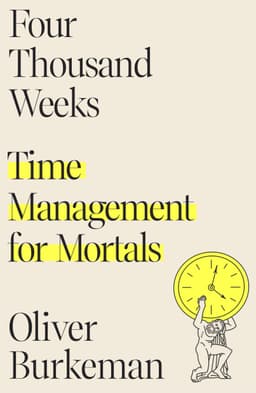
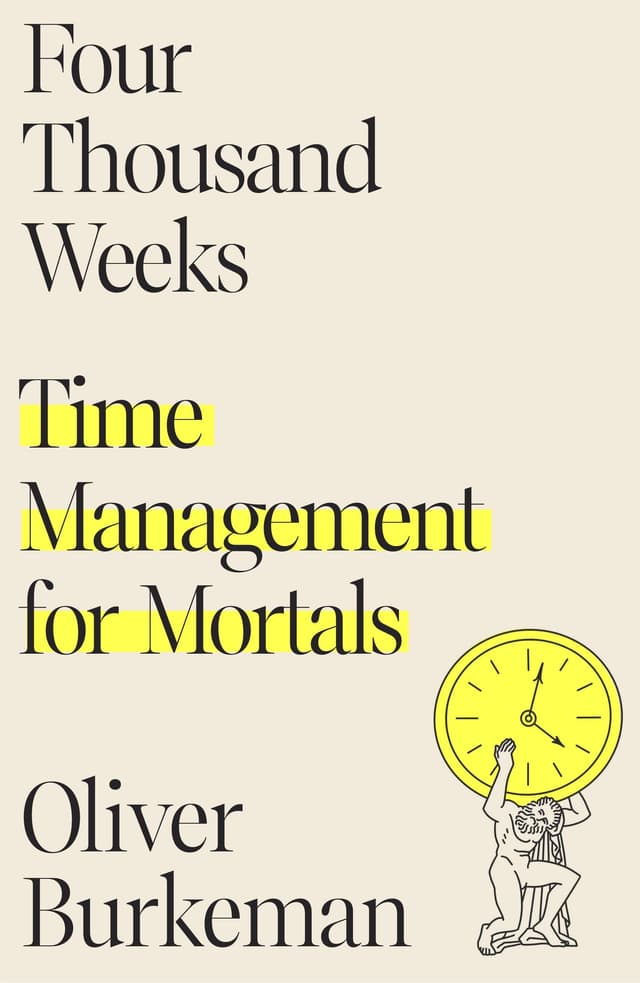
Four Thousand Weeks Book Summary
Oliver Burkeman
"Four Thousand Weeks" offers a radical perspective on time management, urging us to abandon the futile quest for control and embrace our finite existence. By accepting our limitations and making conscious choices, we can discover a more meaningful and fulfilling way to spend our brief time on this planet.
"Four Thousand Weeks" offers a radical perspective on time management, urging us to abandon the futile quest for control and embrace our finite existence. By accepting our limitations and making conscious choices, we can discover a more meaningful and fulfilling way to spend our brief time on this planet.
Philosophy
Personal Development
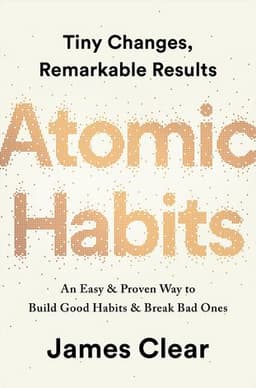
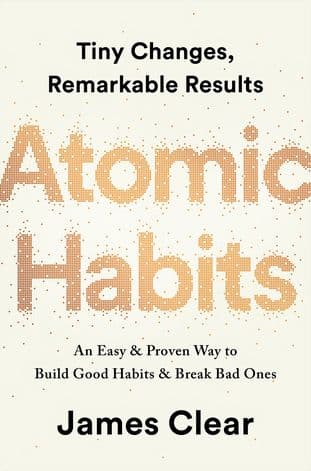
Atomic Habits Book Summary
James Clear
Atomic Habits reveals the surprising power of small habits, demonstrating how tiny changes can compound into remarkable results over time. By focusing on systems over goals and building identity-based habits, you can create lasting change and unlock your full potential.
Atomic Habits reveals the surprising power of small habits, demonstrating how tiny changes can compound into remarkable results over time. By focusing on systems over goals and building identity-based habits, you can create lasting change and unlock your full potential.
Productivity
Personal Development
Psychology

